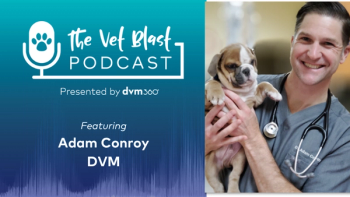
Just say yes to a drug-free workplace
Almost half of illicit drug users who are employed full-time work at businesses with fewer than 25 employees. Find out how you can make your practice a drug-free zone.
When drug users arrive for work, they don't leave their problems at the door. And 74 percent of the 16.7 million illicit drug users 18 years old or older in 2003 were employed either full- or part-time. According to a U.S. Department of Health and Human Services survey, 44 percent of illicit drug users who are employed full-time work for small businesses with fewer than 25 employees.
Small businesses often don't have drug-free workplace policies, so they're more attractive to abusers. While OSHA doesn't require a policy, it strongly supports such programs. Here's why you might want to consider one in your practice:
- minimize your potential for on-the-job accidents
- gain a reduced premium on your workers' compensation and your general liability policy
- reduce your risks for employee theft or fraud
- minimize disciplinary problems, absenteeism, and tardiness
- maintain a positive staff morale.
(See "5 Parts of a Drug-Free Workplace Plan" for more on how to implement one in your practice.)
5 parts of a drug-free workplace plan
Research shows that including these components usually leads to a more effective program:
1. A written drug-free workplace policy. Explain why you're implementing the policy. This can be as simple as saying that you're committed to the health and well-being of your employees and patrons. Clearly describe prohibited behaviors. For example, you could say, "The use, possession, transfer, or sale of illegal drugs by employees is prohibited." Lastly, explain the consequences for violating the policy. These should be consistent with existing personnel policies and procedures and any applicable state laws.
2. Supervisor training. Because supervisors are regularly in direct contact with staff members, they're often in the best position to notice substance abuse early on. Yet this doesn't mean they should try to diagnose or treat. Their duties should include observing and documenting unsatisfactory work performance or behavior, discussing work performance or behavior problems with staff members, understanding the substance abuse policy of the practice and being able to explain it to others, and knowing when to take action.
3. Staff education. If you don't share the policy with staff members, it will be just an unenforced document.
4. Employee assistance. Programs that help employees address alcohol or substance abuse problems can help correct poor workplace performance. Plus, they're an excellent benefit to employees and their families. At a minimum, compile an easily accessible file with information about community-based resources, treatment programs, and help lines.
5. Drug testing. This isn't required, and in fact, many state and local governments limit or prohibit workplace testing. On the other hand, most private employers have the right to test for a wide variety of substances. Consider the following before instituting testing: Who will be tested? How and when will you conduct tests? Which drugs will you test for? When it comes to drug testing, you must have competent legal advice, so consult with your attorney first.
Many states also have laws and regulations that influence when, where, and how employers can implement drug-free workplace programs. So check out the Department of Labor's state-level information at
Newsletter
From exam room tips to practice management insights, get trusted veterinary news delivered straight to your inbox—subscribe to dvm360.




